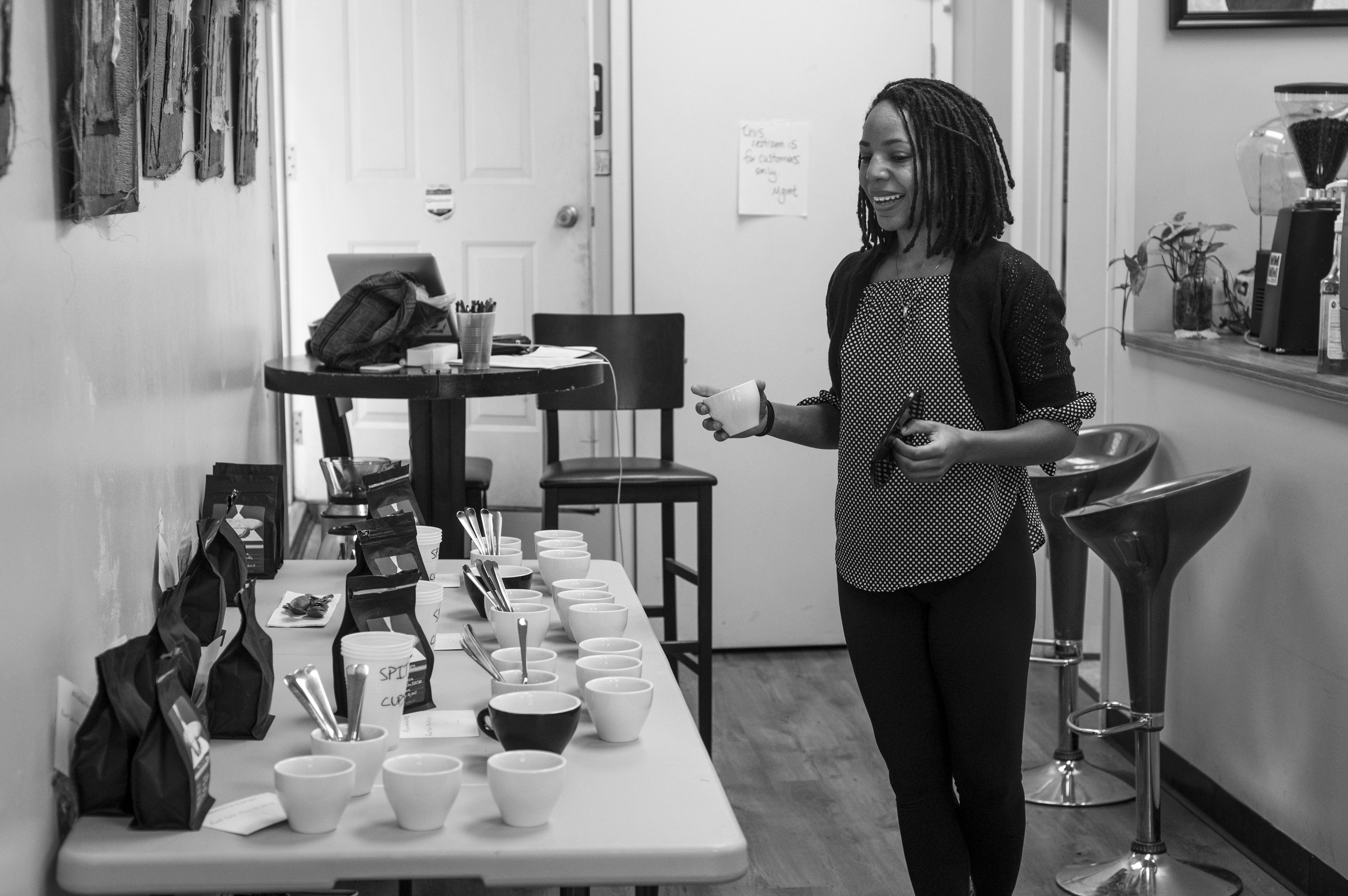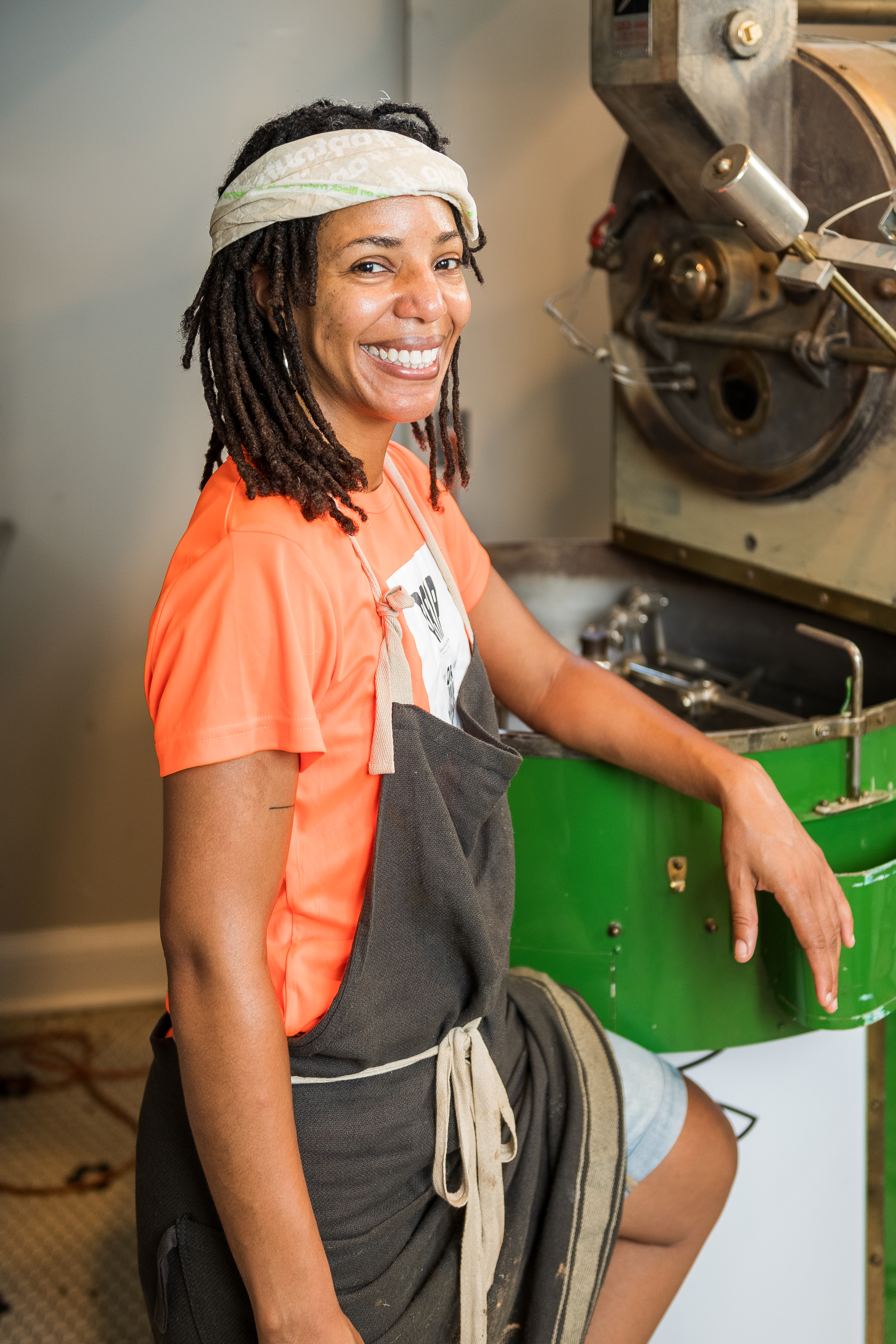
For organic coffee roaster Candy Schibli, a cup of coffee isn’t just a cup of coffee. It represents a ritual savored by people around the world and a healthy spark for greater mental and physical potential. And in Schilbi’s case, a product produced sustainably and organically by mostly small farmers who are women of color.
Schibli, founder of Southeastern Roastery in Baltimore, Maryland, is a member of the Organic Trade Association and participant in OTA’s Diversity and Entrepreneurship program, which is a part of the association’s Justice, Equity, Diversity, and Inclusion (JEDI) commitment. Joining the OTA community in 2023, Schibli started the process towards organic certification last fall and is now awaiting her final inspection by her certifier, Quality Certification Services (QVS).
Working with the trade association in her path to certification has been incredibly helpful, says Schibli. In addition to the $750 grant from OTA toward her certification costs, the connections she’s made through the OTA community have been invaluable.
“The diversity network that OTA introduced me to has been just extraordinary for us,” according to Schibli. “Meeting others in the organic community has been very helpful and has given us so much visibility.”
 At first glance, Schibli’s journey from a chemical engineer and international sustainable agriculture consultant to an organic coffee roaster looks a little ... unexpected. But after a closer look and a conversation with the busy entrepreneur, it makes almost total sense.
At first glance, Schibli’s journey from a chemical engineer and international sustainable agriculture consultant to an organic coffee roaster looks a little ... unexpected. But after a closer look and a conversation with the busy entrepreneur, it makes almost total sense.
“Going from chemical engineering to becoming a coffee roaster is not actually far off,” Schibli explains. “Chemical engineering and the process of coffee roasting have many similarities... coffee roasting is a thermodynamic process; it’s an industrial process, so a lot of the theories I learned in engineering can be applied in coffee roasting. Plus, my background in natural resources and sustainable development helps me in sourcing my coffee beans.”
Schibli started Southeastern Roastery in 2016 in the kitchen of her great grandmother’s home in rural southeastern Virginia (hence the name of the roastery) where she assembled a one-kilogram roaster and began roasting beans and building a small base of customers. She eventually purchased a bigger 12-kilo roaster – too big for her grandmother’s house – so she opened a pop-up roastery and coffee shop that operated out of a Washington, D.C., restaurant. In late 2019, she moved her operations to Baltimore, and just recently moved into an even larger facility which can accommodate her 12-kilo roaster and a newly purchased 20-kilo machine.
From the start, Schibli wanted her business to give opportunities to often underserved women of color and has tried to work with female-run companies and farms throughout her supply chain. She’s also chosen organic beans whenever she could, although the global world of coffee has presented special challenges.
“We’ve always purchased organic beans, but the beans are not always certified organic,” says Schibli. “Many of the smaller coffee farmers in the countries we work with cannot afford certification and that locks them out of business, so we haven’t shut those folks out. We buy from them as well as organic certified.”
Typical of her global perspective, Schibli sees organic certification for Southeastern Roastery as more than just a benefit for her company but for the coffee growers she works with.
“There is a larger market we can reach by having the Organic seal. Organic certification will help us get recognized for some of the work we’re already doing, as well as open more doors and markets for us to reach new customers and increase revenue,” says Schibli. “I’d also like to help on the back end with some of the folks that we work with to get certified as well. I know the process is a bit different in the growing countries than in the U.S., but that’s kind of been my organic trajectory.”
Schibli knows from first-hand experience the benefits of having a good tutor in obtaining organic certification. Before she made the turn to coffee roaster, she consulted and worked with coffee growers and coffee roasters across the globe, including an organic coffee company with which she walked through the organic certification process.
“When I started my company, I had already put in place many of the processes for tracking inventory that need to be in place for certification, so that when we did go into organic certification, we were already set up to meet the requirements,” she explains.
Growing her business, helping others grow theirs – two of the biggest benefits in Schibli’s eyes of organic certification. And there’s another one: “Being certified organic will help us expand more of our product, and that will really help with the education of our customers and consumers about the organic process and coffee and why it’s important.”
Lots to think about next time you order that cup of coffee.
